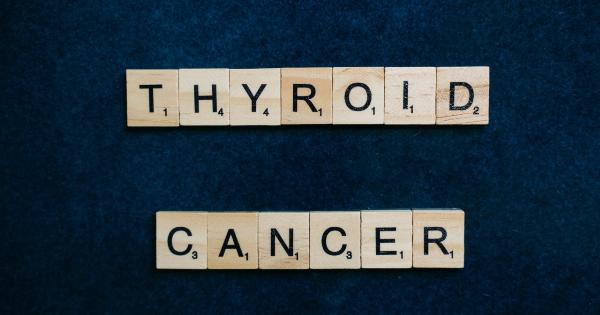Iodine is a trace mineral that is required for the synthesis of thyroid hormones. These hormones are important for the regulation of metabolism, growth, and development.
Without adequate iodine intake, thyroid function can be impaired, resulting in an iodine deficiency disorder (IDD). IDD is a significant global health problem, affecting an estimated two billion people worldwide.
Causes of Iodine Deficiency
The primary cause of iodine deficiency is inadequate intake of iodine through the diet. Foods that are high in iodine include table salt, seafood, dairy products, and eggs.
Some regions of the world have iodine-poor soils, leading to iodine-deficient crops and livestock. In these areas, iodine deficiency is particularly prevalent.
Other factors that can contribute to iodine deficiency include:.
- A vegetarian or vegan diet low in iodine-rich foods.
- Pregnancy or lactation, as the iodine requirements increase during these times.
- Use of medications that interfere with iodine uptake, such as certain heart medications and anti-thyroid drugs.
- Excessive intake of goitrogens, which are substances that interfere with the thyroid gland’s ability to use iodine. Goitrogens are found in certain vegetables, such as cabbage, kale, and Brussels sprouts.
Symptoms of Iodine Deficiency
Iodine deficiency can cause a range of symptoms, which can vary depending on the severity of the deficiency. Some of the most common symptoms of iodine deficiency include:.
- Swelling of the thyroid gland (goiter)
- Fatigue
- Dry skin
- Weight gain
- Cold intolerance
- Hair loss
- Constipation
- Depression
- Irritability
- Muscle weakness
- Difficulty concentrating
Risks of Iodine Deficiency
Iodine deficiency can have serious health consequences, particularly for pregnant women and children.
Pregnancy
During pregnancy, iodine requirements increase to support fetal growth and development, particularly of the brain and nervous system.
Severe iodine deficiency during pregnancy can lead to miscarriage, stillbirth, and congenital abnormalities, known as cretinism. Cretinism is characterized by intellectual disability, deafness, and physical deformities.
Children
Iodine deficiency can also have a significant impact on children’s development and cognitive function. Mild to moderate iodine deficiency can lead to lower IQ scores and impaired cognitive function.
Severe iodine deficiency can result in stunted growth and developmental delays.
Diagnosis of Iodine Deficiency
Iodine deficiency can be diagnosed through a number of tests, including:.
- Urinary iodine test: Measures the amount of iodine in the urine
- Blood test: Measures levels of thyroid hormones and thyroid-stimulating hormone (TSH)
- Thyroid ultrasound: Used to assess the size and structure of the thyroid gland
- Iodine loading test: Measures the body’s ability to retain iodine
Treatment of Iodine Deficiency
The treatment for iodine deficiency depends on the severity of the deficiency and the underlying cause. Mild to moderate iodine deficiency can usually be treated with increased dietary intake of iodine-rich foods or iodine supplements.
Severe iodine deficiency may require treatment with high-dose iodine supplements or the use of iodized salt.
Prevention of Iodine Deficiency
Preventing iodine deficiency is important for overall health and well-being. Some ways to prevent iodine deficiency include:.
- Consuming iodine-rich foods, such as iodized salt, seafood, dairy products, and eggs
- Taking iodine supplements, as recommended by a healthcare professional
- Avoiding excessive intake of goitrogens, or cooking them to reduce their goitrogenic effects
- Using iodized salt for cooking and seasoning foods
- Ensuring adequate iodine intake during pregnancy and lactation
Conclusion
Iodine deficiency is a significant global health problem, affecting an estimated two billion people worldwide. Without adequate iodine intake, thyroid function can be impaired, resulting in an iodine deficiency disorder (IDD).
Symptoms of iodine deficiency can include swelling of the thyroid gland (goiter), fatigue, weight gain, and muscle weakness. Iodine deficiency can have serious health consequences, particularly for pregnant women and children. Preventing iodine deficiency is important for overall health and well-being.



























